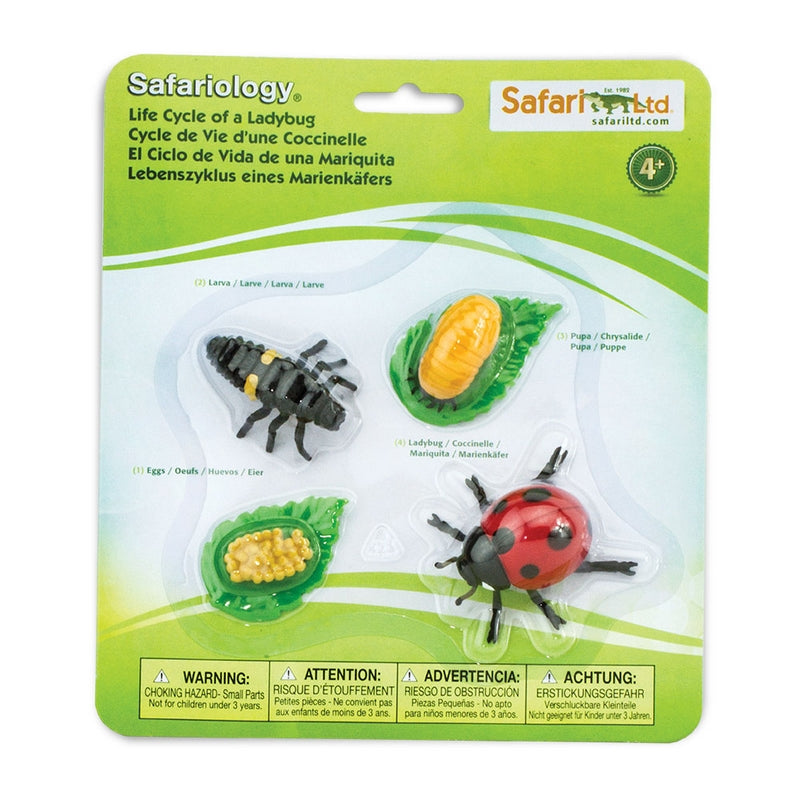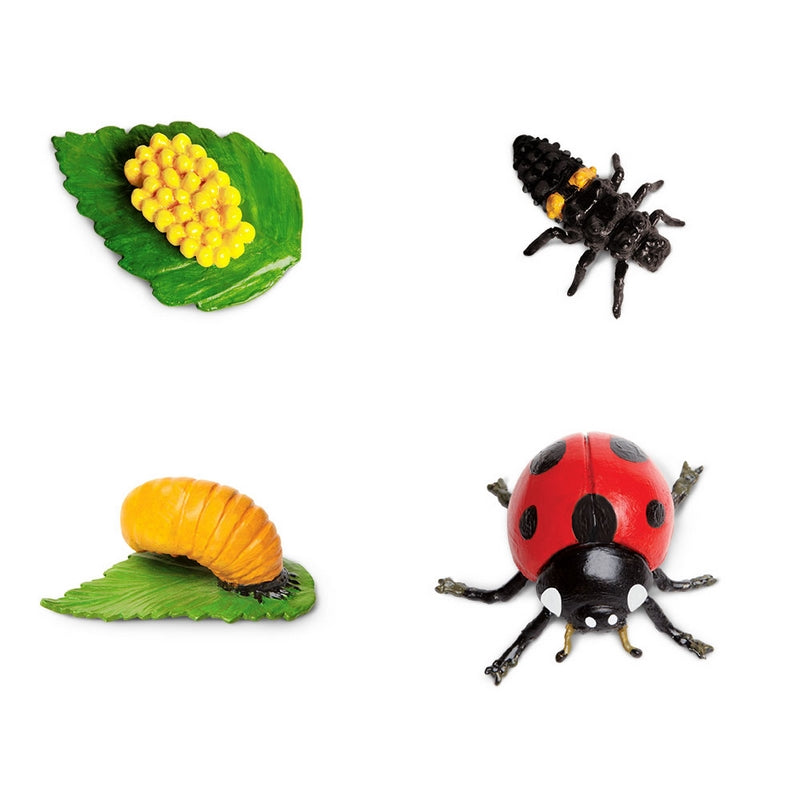- The ladybug is also known as the ladybird, and more correctly known as the ladybeetle. The insect goes through the four stages of metamorphosis, hatching from an egg to become a voracious larva, then forming a pupa from which the colorful ladybug emerges.
-
Scientific Name: Coccinella septempunctata
-
Characteristics: Ladybug eggs are attached to leaves of plants infested by aphids, which provide a ready food source for the hungry larva. After molting four times, it enters the pupa stage.
-
Size and Color: The larva stage of the ladybug is said to resemble an alligator with its long jaws. The bright red and black adult ladybug figure is 2 ½ inches wide, about the same as a large spoon.
- The Life Cycle of a Ladybug is part of the Safariology® collection.
- All of our products are Non-toxic and BPA free.
History
Ladybugs, also called ladybirds because they can fly, and more properly know as ladybeetles, get their name from the reddish color of their exoskeleton. The Virgin Mary was often depicted in a red cloak, and “lady” refers to her. Over 5000 ladybug species live all over the world, and they are mostly considered beneficial insects because they feed on aphids and other insects that damage plants.
- Recommended Age: 4+
- Size in cm: 19.5 W x 23 H
- Size in inches: 7.68 W x 9.06 H
- UPC: 609366662718



